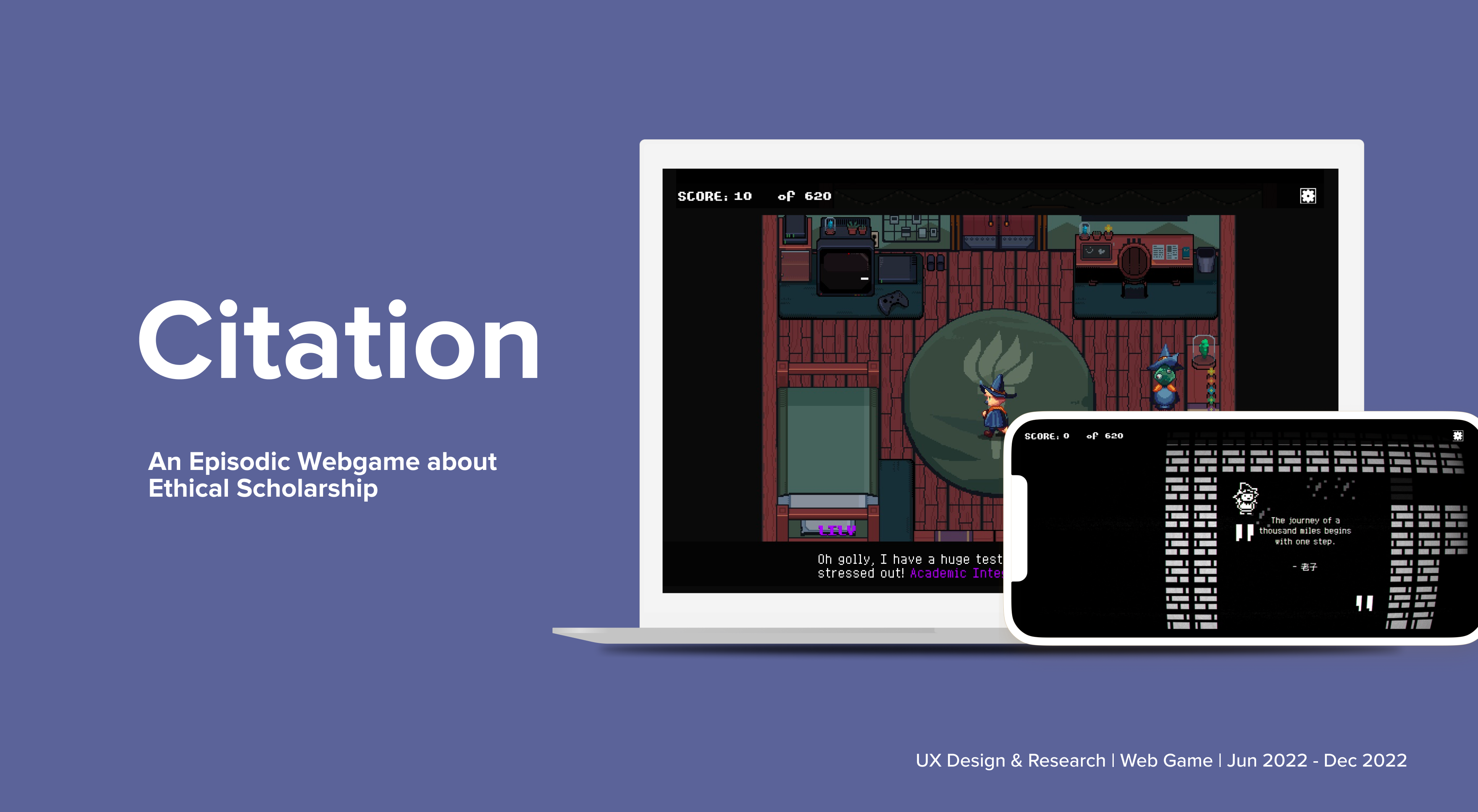
For the summer of 2021, I interned at Hall Pass Studios and worked on a project Citation - a series of fun and competitive web-based games that communicate the importance of academic integrity, while also measure students' understanding of the topic. I was responsible for game-design, art, play-testing, and producing trailer.
Play Citation Watch TrailerAll college students are expected to perform ethical scholarly behaviors. However, the current model of teaching academic integrity concept is extremely text-heavy. Text-based learning materials are efficient and easy to update for the providers, but are disengaging for the users.
How can we support the already existing learning materials to make academic integrity training more engaging for the students?
Citation - an interactive game that deeply engages players to incentivize and reward academic integrity concept learning.
Citation is a web-based game with a responsive design. It is available on laptop and mobile.
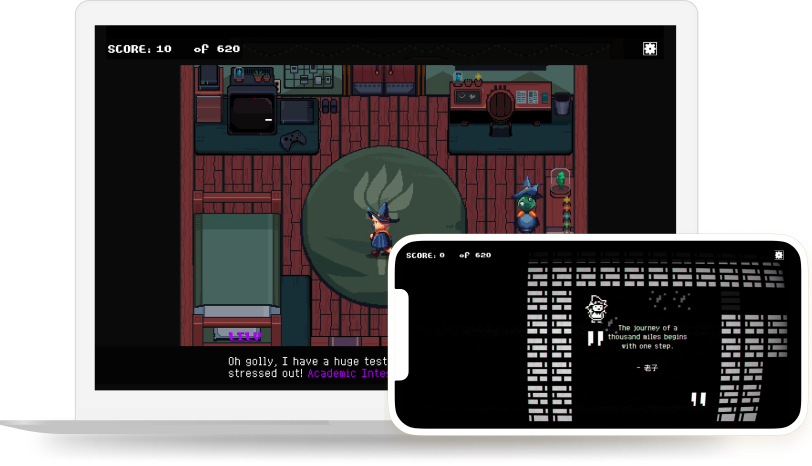
Citation is designed with minimal user interface. To avoid tutorialization, we focused on intuitive discoveries like using mobile joystick or desktop arrow keys and WASD keys to move. We also added visual cues like highlighting interactable objects, and supported user control such as dialogue skips.
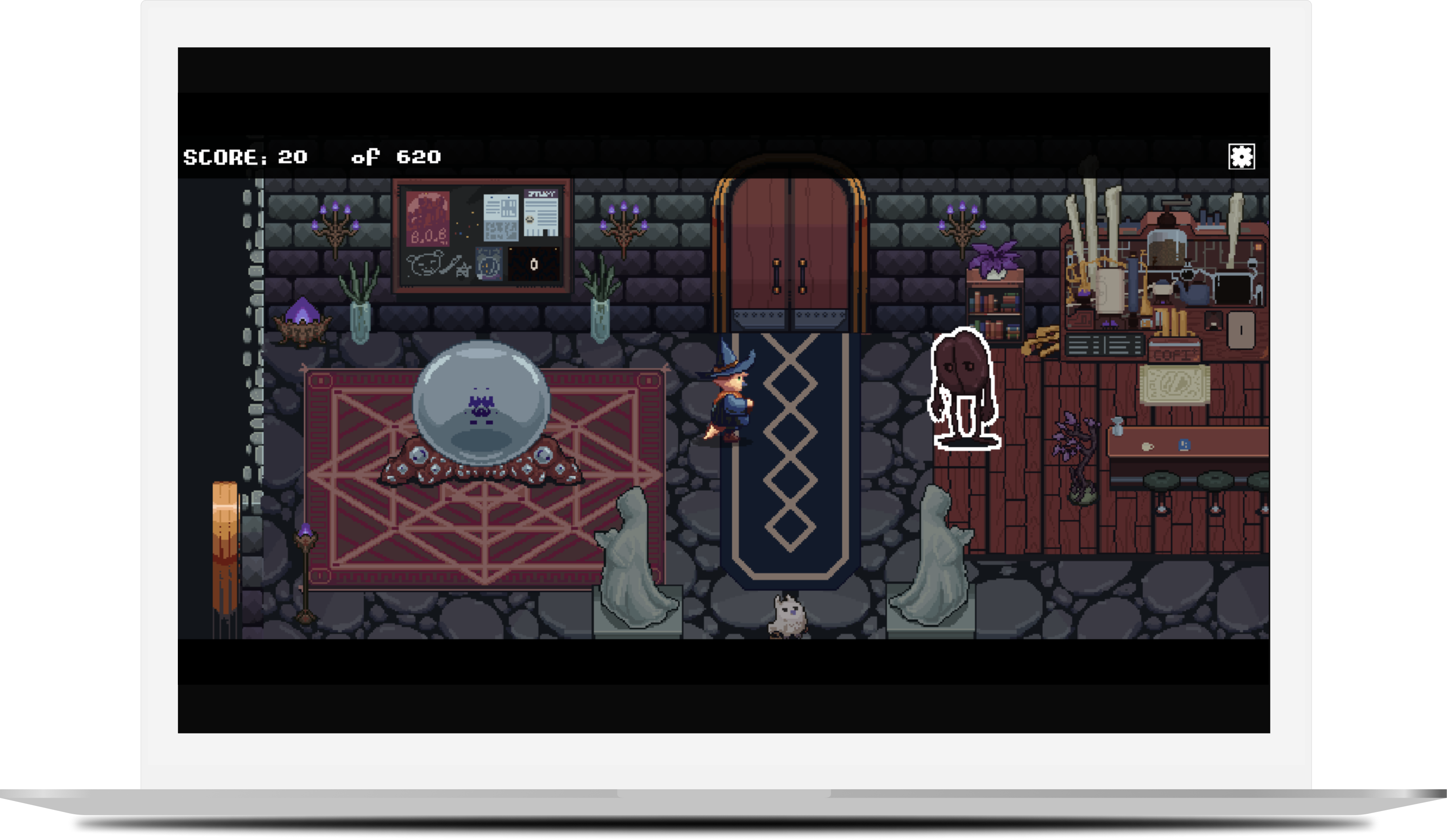
Within the adventure game, we implemented series of mini games that are designed to help players assess their knowledge while imparting it. For quiz maze, players are given 100 secs to find their way through a maze, choosing the correct answers (path).
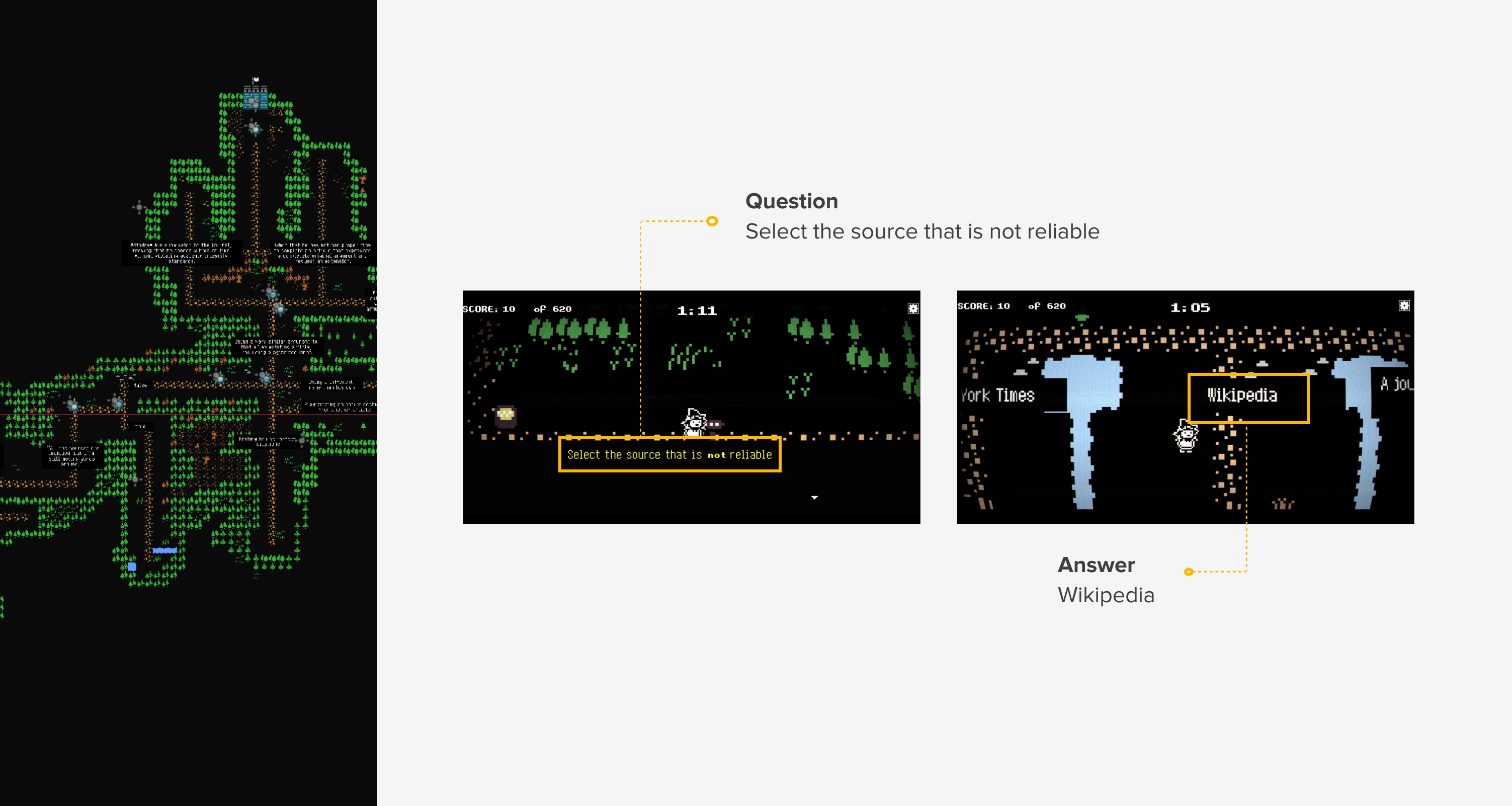
Players can hover on the purple highlights to learn more about the concepts. Players are also encouraged to read academic integrity case studies. The game is designed in a way that only the players who are familiar with these contents can complete the challenges.

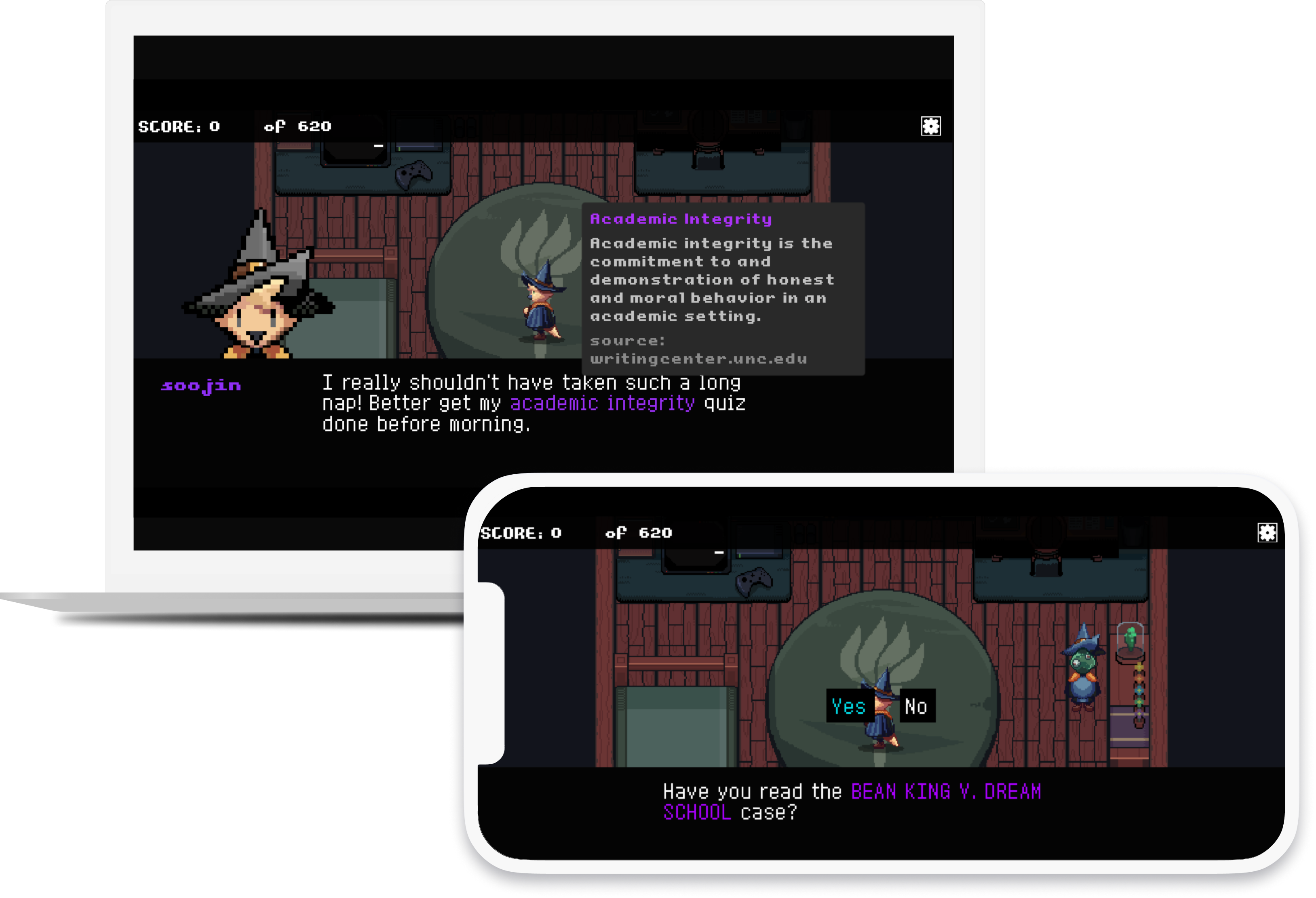
Once the Alpha version was ready, I conducted play-testing with friends, family, and game developers at NYU Game Center. Along with observing how the players play the game, we setup realtime database to track players' play sessions. We analysed objectives players have met and how long it took them to meet those objectives .

Based on the players’ feedback and analyzing the data from play-sessions, we made iterations to enhance the play-experience and maximize learning.
We reduced the dialogue by rephrasing sentences to be more direct and. This changes were made to respect players' short attention-span and to increase the flow of the game.
Originally, the game was designed as a single adventure game with one mini-game placed at the 2/3 way through the adventure. According to the statistics, more than half of the players drop out before reaching the mini-game. In order to increase the number of players completing the game, we divided the game into two episodes, with one mini-game each.
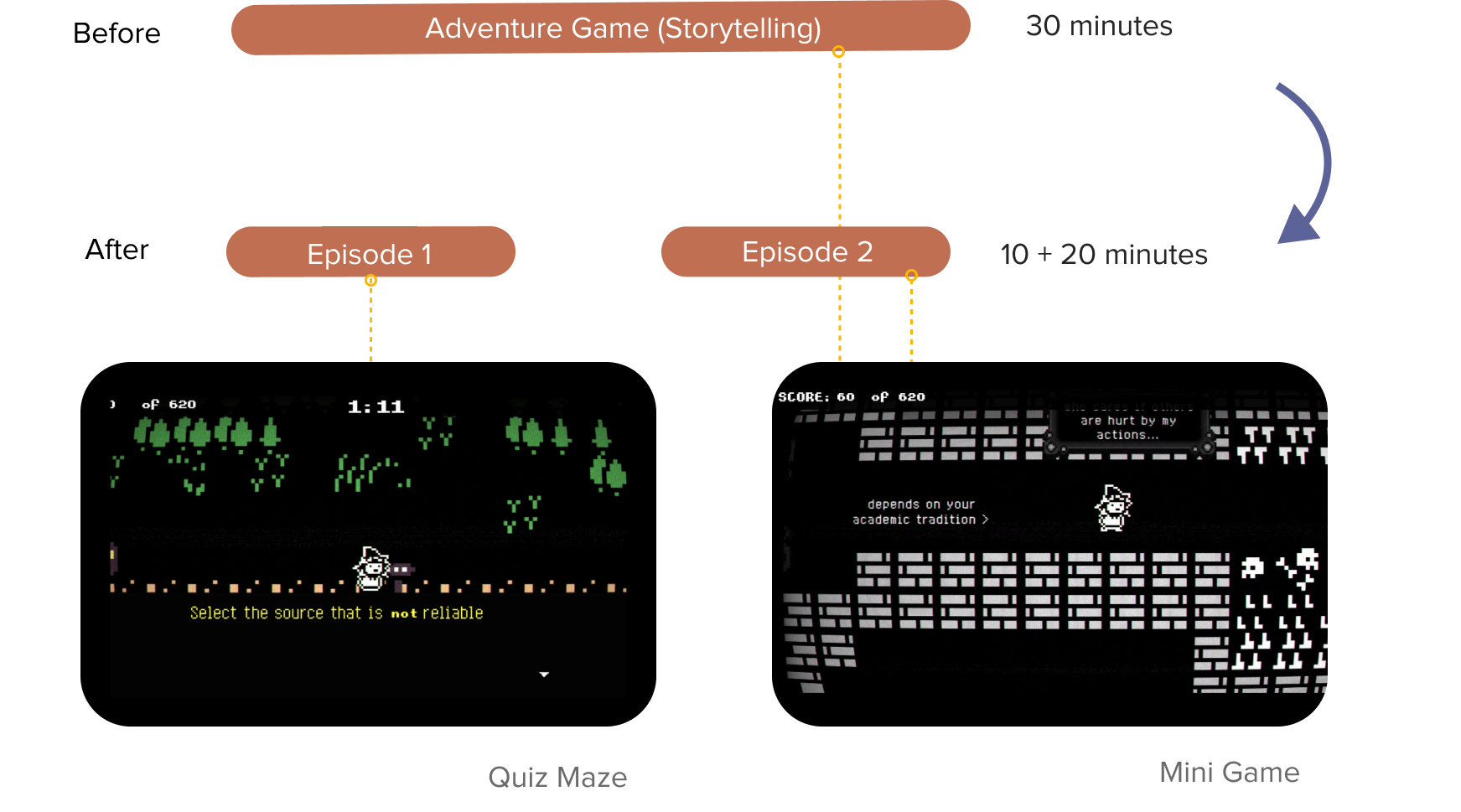
The score board was added to visualize the achievement and the progress. It shows how many points are expected to complete the game, and indicates the players' current progress.
The difficulty of the quiz was adjusted by finding the sweet spot for the initial time limit and the time rewarded.
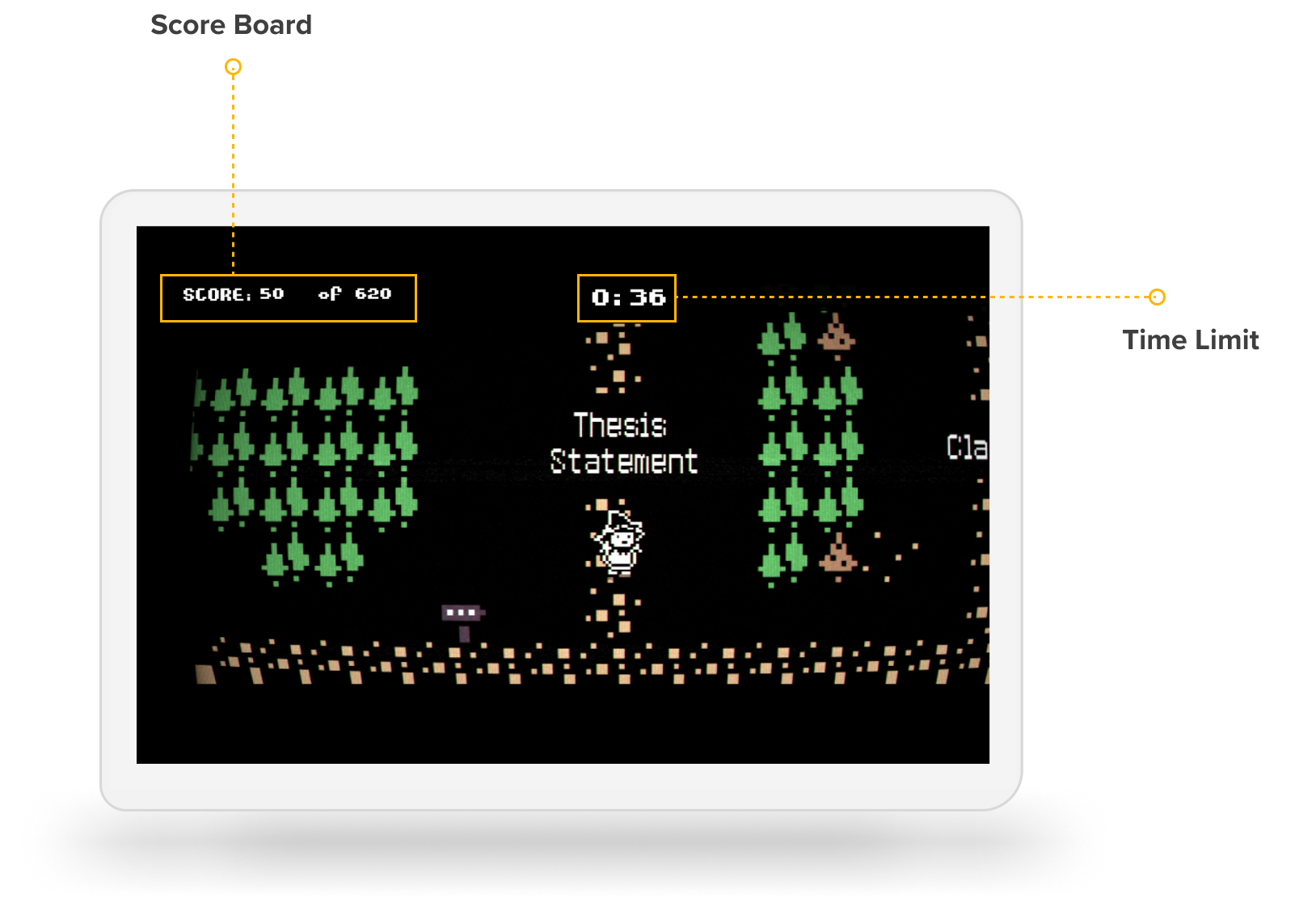
Developing a game for the topic, academic integrity, that is rather serious and scholastic was challenging. Through interactive storytelling with ethical dilemmas, and mini-games with quiz mechanics we were able to communicate the importance of academic integrity and measure students understanding of the topic. Working in a small and dedicated group of 6 people, I was involved in every step of the game production from the research, story development, creating art assts, programming games, conducting play-testings, and even marketing. With this valuable experience, I want to continue making games that serve as a medium of storytelling and education.
After talking to NYU Shanghai and NYU Abu Dhabi's dean of academic affairs and other stakeholders, we hope to officially launch the game. Our aim is to introduce Citation as part of the academic integrity training for the students of 2026. Onto the existing academic integrity training materials, Citation will serve as a resource that supports students' ethical scholarly behaviors.